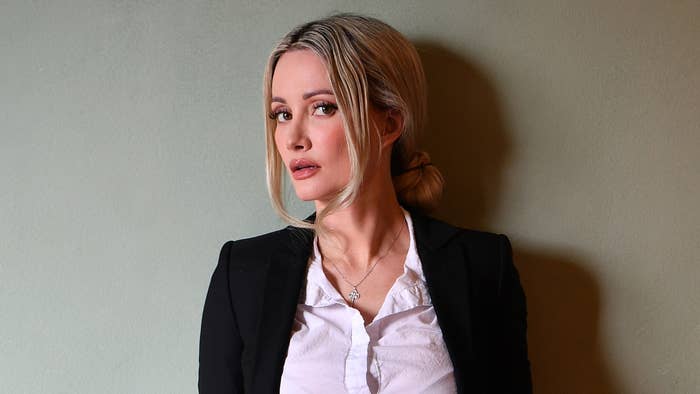
Holly Madison, former Playboy model and former girlfriend of Hugh Hefner, has shed some light on what it’s like living with autism since her diagnosis earlier this year.
During her appearance on the Talking to Death podcast, Madison opened up about living with autism and how she first started knowing she had it.
"I've been suspicious of it for a while,” she said. “Because my mom told me that she was always suspicious that that was a thing."
She added that her mother told her she would "zone out a lot as a kid,” and that she "always kind of had trouble socially, not recognizing social cues, not picking up on things the same way other people did."
The 43-year-old continued, "But I just made excuses for it. I thought it was because I grew up in Alaska, and then around middle school, moved to Oregon and I thought, 'Well that was just a big social change.' So I'm just very introverted. Like, that's kind of always how I wrote it off. But I went and got diagnosed earlier this year, so now I know."
She also said, "And obviously, I'm highly functioning. It's not as extreme as it is for other people. So I'm not a spokesperson for everybody — they call it a spectrum for a reason."
Madison also said on the podcast that she was formally diagnosed earlier this year after undergoing several evaluation tests on Zoom. "The doctor told me that I have high executive functioning, which means I can pretty much go about my life and do things 'normally.'"
"I feel like throughout my life, people have not really liked me or have been like, rubbed the wrong way or been offended. They think I'm like, stuck up or snobby or think I'm better than everybody else," she said. "I also don't really have a gage for when other people are done speaking, so I tend to interrupt a lot, which pisses people off."
Madison gave insight on how she deals with social situations while dealing with her autism.
"I was never making eye contact before at all," she said. "I can apologize to people if I interrupt or talk over them and tell them why."
She claimed that this "helps other people be more understanding" with her disorder. "I have a little bit more patience now and I don't take things as personally,” she said.

